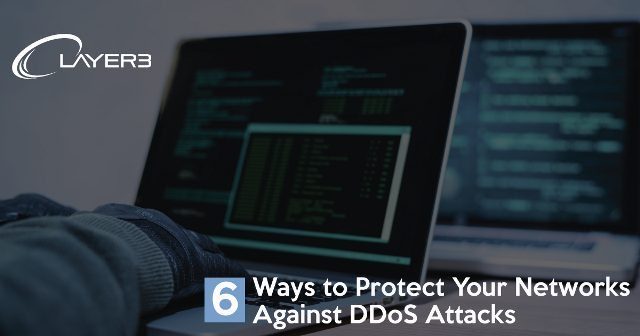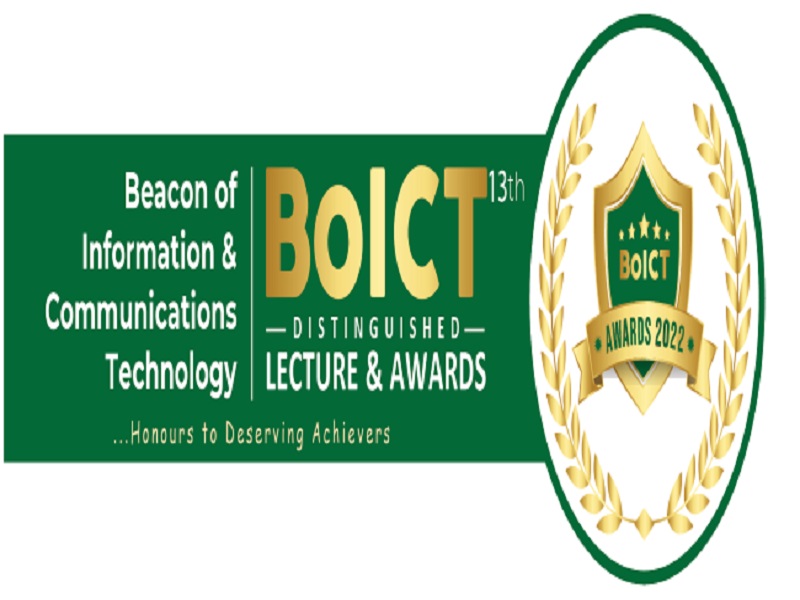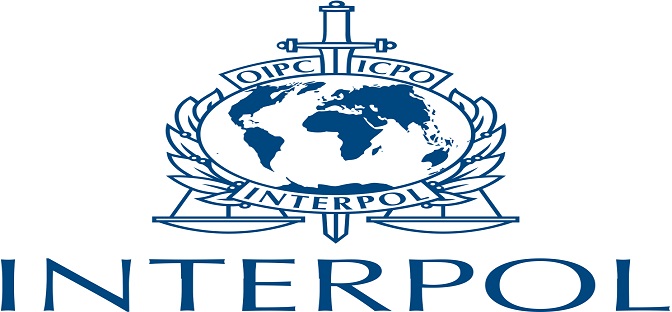News
6 Ways to Protect Your Networks Against DDoS Attacks

A DDoS attack can happen to anyone.
In the past, it has hit Twitter, Telegram, GitHub, and the BBC. Whole governments, like those of Ecuador and Estonia, have had their websites knocked out by it.

This is not a rare threat. Every year, numerous organizations suffer from targeted DDoS attacks, launched at them by malicious agents from unknown locations. It causes their websites and networks to shut down and makes them lose millions of otherwise productive hours.
That’s a lot of revenues foregone. In the United States alone, businesses lose $10 billion annually because of these incidents. And with these attacks growing in other parts of the globe, there’s reason to be wary of the threat that they pose.
Your organization could be at risk, regardless of where you are.
But what are DDoS attacks? How do they work?
What is a DDoS Attack?
A DDoS (Distributed Denial of Service) attack is a type of DoS attack.
In a DoS attack, a malicious agent attempts to overwhelm their victim’s networks with fake traffic. For instance, they could send a lot of false requests to the victim website. The aim here is to stuff the network so much that people with real requests cannot get through to the website.
A regular DoS is launched from a single user device. But in a DDoS, the human agent gains access to several devices (PCs or smartphones) by infecting them with malware, and use those devices (collectively called a ‘botnet’) to flood the victim’s network with fake requests.
When a network comes under attack in this way, its servers will either fail to perform optimally or crash.
What are the Types of DDoS Attacks?
There are two general groups of attacks in this category:
- Network Layer Attacks: this aims to clog up the pathways connecting your network. They make it difficult for genuine traffic (from customers or non-malicious visitors) to access the affected organization.
The scale of these attacks is measured in Gigabytes per second (Gbps). Assaults of several hundred Gbps have been reported, but anything above 20Gbps could knock out your network.
- Application Layer Attacks: In this case, the attacker sends requests that require considerable resources to handle. They cause the victim’s disk spaces and CPU to fill up with false logs.
What Motivates DDoS Attacks?
Here are the most common reasons why attackers launch DDoS assaults.
- Extortion: They may ask you for a ransom in exchange for ceasing their attacks.
- Cyber-Activism: Also known as ‘hacktivism’. Certain groups strike at organizations that they believe aren’t aligned with their cause (e.g. if they think the organization has a bad social or environmental record).
- Competition: A competitor may be responsible for a DDoS attack launched at your business.
- Lone Attackers: Some people may do this for other reasons, e.g. gaining the respect of a community of illegal hackers.
How Do You Protect Against DDoS Attacks?
You wouldn’t want to waste days recovering from a DDoS strike, or lose substantial amounts of money in that period. Here are some steps you can take to prevent this from happening:
- Design a Response Plan for DDoS Attacks
Document a response strategy for a DDoS attack. This should include ways to ensure business continuity even when a DDoS attack succeeds. Assign roles (for instance, a rapid response team) and establish communication systems that can be activated if this happens.
- Guard Against Other Threats to Your Networks
Many cyber attackers are now using DDoS as a diversionary tactic. They could keep IT teams engaged with a DDoS strike, while they launch malware at your systems. This calls for vigilance on your part. Don’t be so preoccupied with fending off a single threat that you forget to guard other posts.
- Track Your Traffic
Use monitoring tools to track traffic. Monitor for possible spikes in incoming network traffic, and keep an eye on suspicious IP addresses when you spot them. Note that sudden, sharp, and unexplained rises in traffic could be a sign that an attacker is ‘testing’ your defenses. If the threat isn’t checked at this early stage they may follow up with a major DDoS attack.
This measure isn’t enough to keep malicious agents away. But it does let you prepare for a possible strike against your network infrastructure.
- Set Up Network Security
You should have a combination of network security tools in place to protect against these strikes. These include firewalls, content filtering, anti-spam, and load balancing. Taken together, these should give you a moderate buffer against malicious traffic.
- Update Your Systems
Your old systems could have vulnerabilities in them that DDoS attackers could exploit. By updating your system, you gain access to the newest defenses that your IT service providers have to offer and stay a step ahead of the vandals.
- Work with an IT Security Solutions Provider
Unless you have a big, five-star in-house IT team, even your best efforts may fail to ward off a DDoS attack. That’s why you need to work with an IT security services company that takes on this task and delivers at the highest level.
If you’re in Nigeria, you can trust Layer3 to secure your networks against security threats. It provides this service to clients in several industries, including some of the country’s top organizations.
Conclusion
Denial-of-service attacks are becoming more frequent. It’s one unsavory consequence of an interconnected world—ill-intentioned actors can target victims from wherever they are in the world. Unless you have the right defenses and mitigating strategies, you may suffer major losses from these assaults.
Thankfully, there’s help you can use. At Layer3, our team of experienced cybersecurity professionals can help you guard against these threats. Whether it’s testing and vulnerability assessment, log management, incidence response, or a fully managed security service, you’ll get the protection that suits your needs.
Would you like to get a robust defense against DDoS and other cyberattacks? Get in touch with us today via the contact channels here.
News
ABoICT Lecture 2026 to Focus on Impact of AI, IoT on Business Operational Efficiency

Board and management of Communication Week Media Limited, publishers of Nigeria CommunicationsWeek, at the weekend announced that this year’s Africa’s Beacon of ICT Merit and Leadership lecture will focus on Impact of AI and IoT on business operational efficiency.

Africa’s Beacon of ICT Merit and Leadership lecture, widely regarded as the most prestigious annual event available in the ICT industry in Nigeria is in its 17th year.
The lecture holds on May 30, 2026 at Oriental Hotel Lekki, Lagos, according Ken Nwogbo, editor-in-chief of
Nigeria CommunicationsWeek the organizers of the event.
He said that this year’s event “is digital transformation edition” to recognise and celebrate organizations and individuals in the ICT industry that have impacted in digital transformation of the economy.
“Most of these organizations and individuals have consistently being voted by our readers as leaders in their areas of operations and we have decided to reward them in this special edition, tag: ‘Digital Transformation Edition 2026’ he said,”.
He added that, Digital transformation, driven by AI and IoT, will fundamentally boosts business operational efficiency by automating complex tasks, enabling real-time data analysis, and reducing costs.
“IoT technology optimizes resources, predict maintenance needs, and enhance decision- making, allowing companies to streamline workflows and improve productivity across sectors like manufacturing and logistics.
“It is an emerging technology that has impacted lifestyles and has changed the way we think and act, and the way we interact with each other.
It has also changed the way we work as it enables very large-scale monitoring, control, and automation, and has impacted the digital transformation of organizations in different industries”, he said.
According to him, “the transformative power of Artificial Intelligence exists as a bringing force in organizational communication. AI tools perform repetitive jobs, deliver simultaneous translations, and register team communication patterns, which lead to better understanding of group interactions. AI chatbots help manage customer support inquiries thus enabling staff members to dedicate their efforts toward complex work activities”.
The Africa’s Beacon of ICT Merit and Leadership Distinguished (ABoICT Lecture 2026) is designed to explore efforts to put Nigeria on the global Information and Communications Technologies map.
The lecture series however is reserved for distinguished achievers in the ICT sector.
Past lecturers included Dr. Ernest Ndukwe, then executive vice chairman, Nigeria Communications Commission (NCC); Uche Orji, managing director/chief executive officer, Nigeria Sovereign Investment Authority (NSIA); Biodu Omoniyi, Managing Director/CEO, VDT Communications; Ayotunde Coker, former Managing Director, Rack Centre Limited; Prof. Adewale Obadare, chief visionary officer, Digital Encode; Dr. Oluseyi Akindeinde, founder,
Hyperspace & NeuraL AI and John Obaro, CEO and founder of Systemspecs; Prof. Isa Pantanmi, former minister of Communications and Digital Economy; among others.
News
AI-Driven Memory Chip Fuels Global Phone Price Surge

Global technology markets are entering a new phase of strain as surging memory chip prices intensify the ongoing semiconductor shortage. For Nigeria, the ripple effects could translate into a 15 – 20 per cent increase in phone price levels if supply pressures persist into the next quarter.

While attention has largely focused on advanced AI processors, the sharpest escalation is occurring in memory chips, specifically DRAM (Dynamic Random Access Memory) and NAND (Flash Memory), which are essential to smartphones, PCs, and vehicles.
According to Bloomberg data, spot prices for DRAM have surged more than 600 percent in recent months. NAND prices have also climbed as artificial intelligence infrastructure expands global storage demand.
This shift reflects a structural realignment rather than a short-term disruption.
Massive AI infrastructure investments led by hyperscalers such as Amazon have redirected fabrication capacity toward high-bandwidth memory (HBM), a critical component for AI accelerators. This shift has tightened supply for conventional memory used in consumer devices.
Market analysts now describe the situation as a memory “supercycle,” breaking the industry’s traditional boom-and-bust pattern. Historically, memory cycles lasted three to four years. According to Jian Shi Cortesi of GAM Investment Management, the current cycle has already exceeded previous ones “both in length and magnitude,” with little evidence of demand momentum softening.
Financial markets reflect the divide. A Bloomberg gauge of global consumer electronics makers has fallen roughly 10 per cent since late September, while a basket of memory manufacturers has surged about 160 per cent over the same period. Shares of SK Hynix, a key high-bandwidth memory supplier to Nvidia, have climbed more than 150 per cent.
By contrast, downstream manufacturers reliant on affordable memory supplies are under pressure. Nintendo has warned of margin compression linked to shortages. Qualcomm shares declined after signaling memory constraints that could limit phone production. PC makers such as Lenovo and Dell have also retreated from recent peaks amid concerns that rising chip costs could dampen demand.
The divergence underscores a widening gap between component producers and device assemblers.
Memory is central to modern smartphone performance. Higher DRAM and NAND capacities power AI-enabled features, high-resolution imaging, and multitasking capabilities. Rising memory costs, therefore, feed directly into the bill of materials.
Even in a moderate demand environment, a constrained memory supply can limit production volumes. Qualcomm’s recent indication that memory shortages may restrict handset output highlights the risk of scarcity extending beyond price increases into availability challenges.
Compounding the issue, a foundry such as TSMC is prioritising higher-margin AI-related contracts at advanced nodes. Combined with the reallocation of capacity toward high-bandwidth memory, this limits flexibility in supplying traditional mobile processors and storage components.
For Nigeria, the likely outcome is not immediate widespread stockouts, but gradual upward revisions in retail pricing.
Nigeria’s electronics market remains heavily import-dependent, with minimal semiconductor manufacturing capacity. Retailers are therefore exposed to global cost shifts and supply volatility.
Distributors in major commercial hubs such as Lagos’ Computer Village are closely monitoring global trends. Some are securing inventory ahead of anticipated adjustments, while others are maintaining leaner procurement cycles to manage uncertainty.
Duration risk remains a key concern. Fidelity International’s Vivian Pai recently observed that while markets may be pricing in normalization within one to two quarters, industry tightness could persist through the rest of the year. If that proves accurate, manufacturers will have limited room to absorb higher component costs without passing them through to consumers.
Mid-tier smartphones, especially those balancing affordability with competitive performance, are likely to face the greatest pressure. Manufacturers may respond by offering lower base storage variants, delaying feature upgrades, or raising prices incrementally across product lines.
Parallel imports could increase if global scarcity intensifies, potentially raising concerns about warranty coverage and after-sales support.
Globally, firms are attempting to mitigate exposure by locking in long-term supply contracts, raising product prices, or redesigning devices to use less memory. However, semiconductor fabrication is capital-intensive and slow to scale. New fabrication plants require years to build, and expanding high-bandwidth memory output involves complex processes that cannot be rapidly accelerated.
For Nigeria, the episode underscores the importance of strengthening digital resilience. While domestic chip fabrication remains unlikely in the near term, expanding local device assembly, promoting repair ecosystems, and supporting component recycling could help cushion future supply shocks.
If projections hold, Nigerian buyers may begin seeing incremental price adjustments within weeks. Mid-range Android devices are likely to record the most noticeable changes, while premium models, already positioned at higher price points, may see more measured increases.
As it stands, AI’s explosive growth is reshaping semiconductor allocation patterns, and memory, once viewed as a product with prices that rise and fall in cycles, is behaving like a sustained constraint.
The widening gap between stock market winners and losers reflects the magnitude of this transition. As AI infrastructure spending accelerates globally, consumer electronics markets, including Nigeria’s, must adjust to a new cost environment.
Whether the squeeze proves temporary or evolves into a prolonged recalibration will depend on how quickly semiconductor capacity expands. For now, the trajectory suggests continued upward pressure on global electronics pricing, and Nigeria’s phone price expectations may have to adjust accordingly.
News
INTERPOL Arrests 651, Recovers $4.3m from Cybercrime in Nigeria, Others

African law enforcement agencies arrested 651 suspects and recovered over $4.3 million in a joint operation targeting investment fraud, mobile money scams, and fake loan applications.

As INTERPOL revealed on Wednesday, Operation Red Card 2.0 identified 1,247 victims between December 8 and January 30 while targeting cybercrime operations linked to over $45 million in financial losses.
Authorities across 16 countries also seized 2,341 devices and took down 1,442 malicious websites, domains, and servers during this joint action coordinated by the African Joint Operation against Cybercrime (AFJOC).
In Nigeria, police officers dismantled an investment fraud ring that was recruiting young people to run phishing, identity theft, and fake investment schemes, taking down over 1,000 fraudulent social media accounts in the process.
They also arrested six members of a Nigerian cybercrime gang that used stolen employee credentials to breach a major telecom provider.
Kenyan investigators also apprehended 27 suspects while investigating fraud networks that used social media and messaging platforms to lure victims into fake investment schemes.
In Côte d’Ivoire, 58 suspects were arrested as part of a crackdown on predatory mobile loan apps that targeted victims with hidden fees and abusive debt-collection practices.
“These organized cybercriminal syndicates inflict devastating financial and psychological harm on individuals, businesses and entire communities with their false promises,” said Neal Jetton, the head of INTERPOL’s Cybercrime Directorate.
“Operation Red Card highlights the importance of collaboration when combatting transnational cybercrime. I encourage all victims of cybercrime to reach out to law enforcement for help.”
One year ago, African law enforcement arrested another 306 suspects in the first stage of this INTERPOL-led operation targeting cross-border cybercriminal networks.
This is the latest INTERPOL operation targeting African cybercrime, with thousands of arrests and multiple multimillion-dollar operations disrupted or dismantled in recent years, following Operation Serengeti and Operation Africa Cyber Surge.

 Telecom3 days ago
Telecom3 days agoBanks, Telcos Settle Four-Year Dispute over N300Bn USSD Debt

 Telecom2 days ago
Telecom2 days agoGroup Condemns Gabon’s Social Media Shutdown Amid Protests

 General News2 days ago
General News2 days agoHow JustMarkets Is Empowering African Traders with Global Market Access

 E-Financial2 days ago
E-Financial2 days agoACAMB Educates Content Creator to Curb Misinformation on Bank Recapitalisation

 General News3 days ago
General News3 days agoPalmPay Unveils First Batch of Winners in #LoveWithPalmPay Campaign

 E-Business2 days ago
E-Business2 days agoMutual Benefits Assurance Settles ₦5.9bn Claims in January 2026

 E-Financial3 days ago
E-Financial3 days agoFirstCap MD says Payment Security Remains Biggest Barrier to Bankable Gas and Power Projects

 Telecom2 days ago
Telecom2 days agoIXPN Positions as the Regional Internet Exchange Hub for West Africa
























